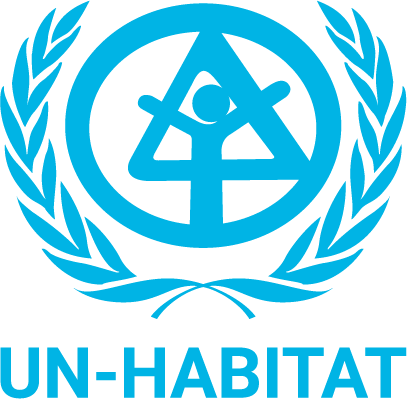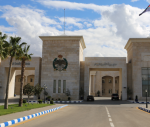You are here
UN-Habitat, RSS to implement COVID-19 response project
By JT - Jan 30,2021 - Last updated at Jan 30,2021
AMMAN — The Royal Scientific Society (RSS) and UN-Habitat on Saturday signed an agreement for a joint research project titled “COVID-19 in the Wastewater Cycle: Survival, Risk and Surveillance in Jordan” initiated by the UN agency’s Global Water Operators’ Partnerships Alliance Programme (GWOPA).
The COVID-19 pandemic has reignited interest in wastewater surveillance, specifically how sewage systems are monitored for the presence of viruses, bacteria and other pathogens, according to an RSS statement.
The concentration of COVID-19 in wastewater samples provides an early alert to address potential cases, and the detection of the virus in sewage has been employed as a complementary method to clinical testing and indicator of virus’ spread in communities, the statement said.
Poor urban communities and refugee camps are most vulnerable to COVID-19 outbreaks given the dense and crowded settings, compounded by reduced financial capacity to conduct PCR testing, when needed.
Jordan has the second highest refugee population per capita in the world, although approximately 83 per cent are urban-based, the remainder live in one of the 13 refugee camps in Jordan (i.e. 10 camps for Palestinians and three for Syrians), according to UNRWA and UNHCR (2020).
Considering the limited resources in Jordan for conducting massive COVID-19 tests, immediate wastewater results can provide considerable advance notice of infection dynamics in Jordanian communities, particularly in vulnerable communities and refugee camps.
In that regard, the joint project will be implemented over six months to address the presence and fate of COVID-19 in the wastewater cycle from the source points at King Abdullah University Hospital in Irbid to the wastewater treatment plant.
The project will propose a sustainable early warning system in Azraq Syrian refugee camp and Jerash Palestinian refugee camp through tracking and monitoring COVID-19 in wastewater.
The Water and Environment Centre and Bio-Safety and Bio-Security Centre at the RSS will be in charge of implementing this project, which seeks to complement the efforts of RSS in wastewater monitoring and assessment across Jordan, the statement said.
The RSS is one of the largest applied research institution, consultancy and technical support service provider in Jordan and is a regional leader in the fields of science and technology. The RSS advocates for a customer–centric approach and demonstrates an unwavering commitment to the people of Jordan.
Hosted by UN-Habitat, GWOPA helps water operators help one another to provide quality services to all.
GWOPA is an international network created in 2009 to support water operators through Water Operator’s Partnerships (WOPs). WOPs are peer support exchanges between two or more water operators, carried out on a not-for-profit basis with the objective of strengthening operators’ capacity and performance to provide a better service to more people, according to the statement.
The project in Jordan will provide valuable insights and experiences that support the work of many water operators involved in combatting and monitoring COVID-19 in cities and communities.
The project is expected to benefit between 70,000 and 80,000 people, including the scientific community in Jordan, water and microbiology researchers directly benefitting from this project is estimated at no less than 1,000, the statement said.
It is expected that 10,000 will benefit indirectly once the research is published. Residents of the Azraq refugee camp — home to 36,874 registered Syrian refugees — and Jerash refugee camp — home to approximately 30,000 registered Palestinian refugees — approximately 200 wastewater treatment plant staff — as well as officials from the Ministry of Health, Ministry of Water and Irrigation.
Related Articles
AMMAN — The United Nations COVID-19 Response and Recovery Multi Partner Trust Fund announced $850,000 in funding to implement a new project
AMMAN – The United Nations Human Settlements Programme’s (UN-Habitat) Regional Office for Arab States, Jordan Country Programme and Lebanon
AMMAN — This week, the United Nations Human Settlement programme (UN-Habitat) in Jordan signed an agreement with the Permaculture Research I
















